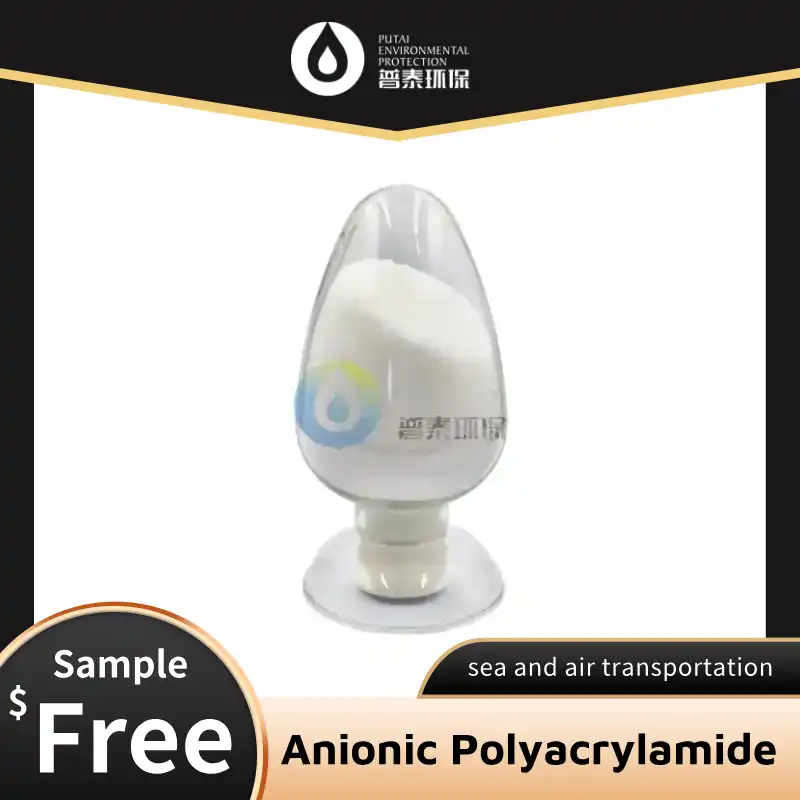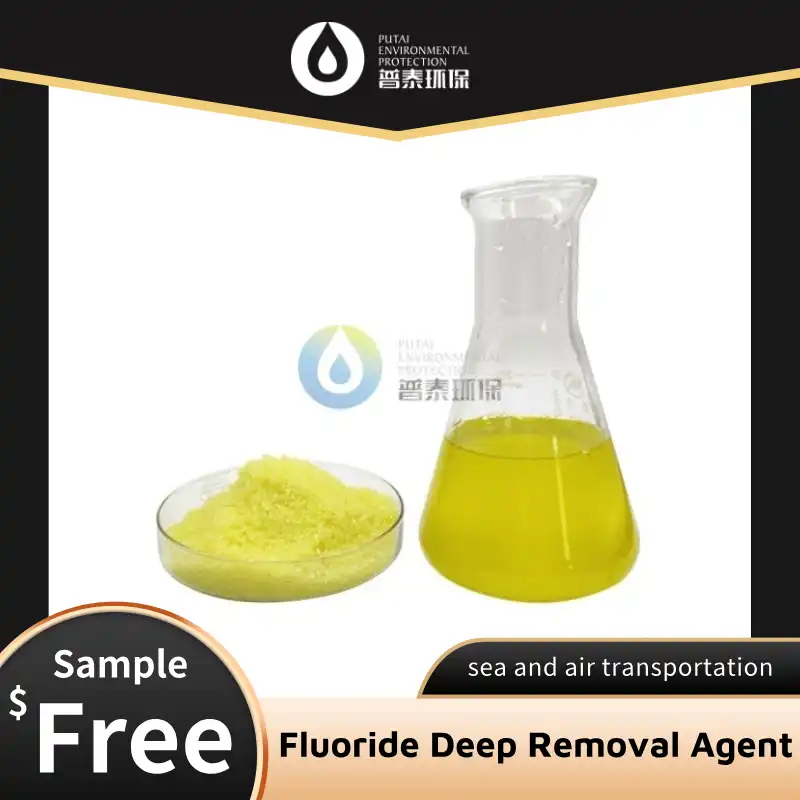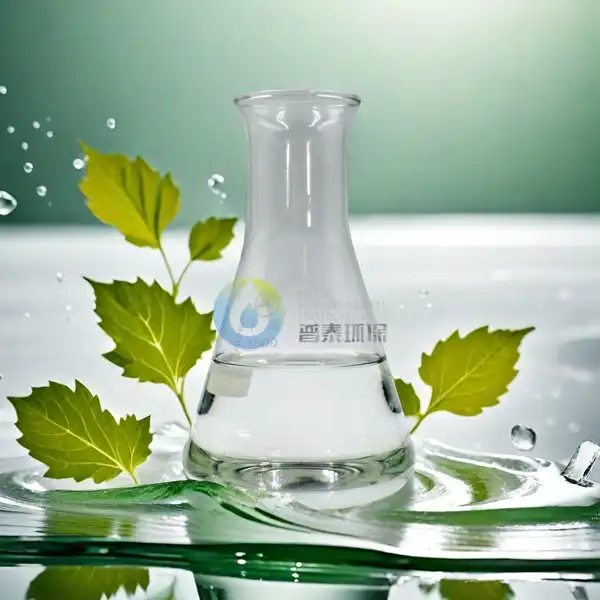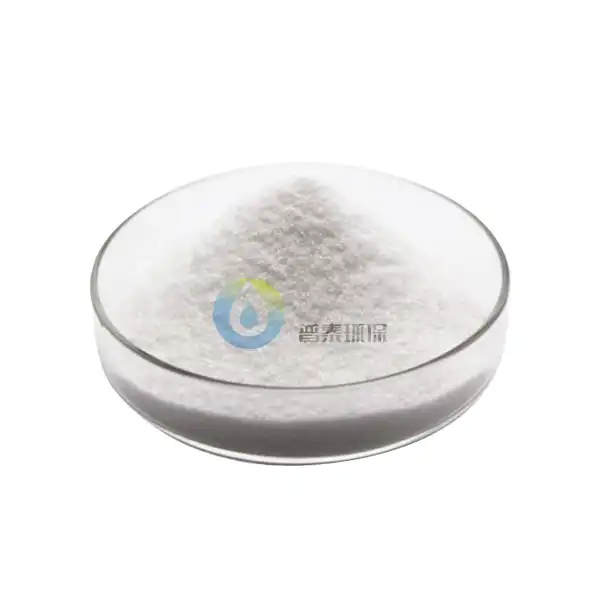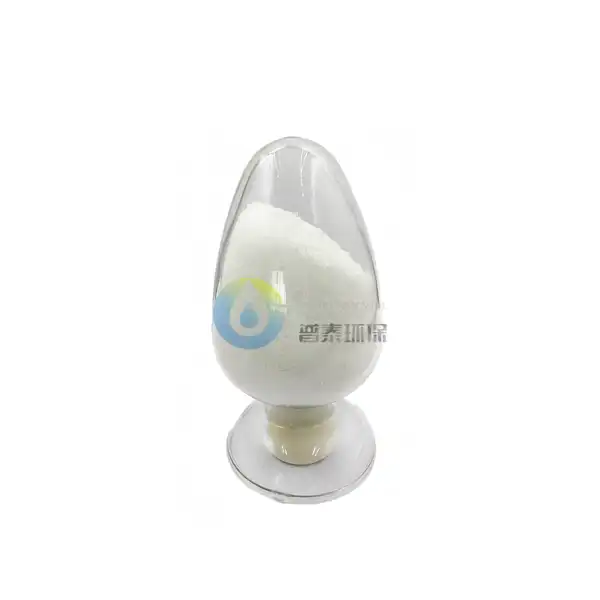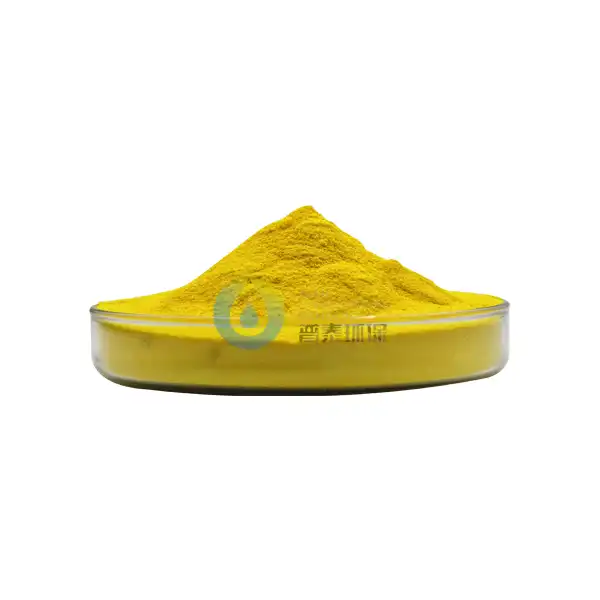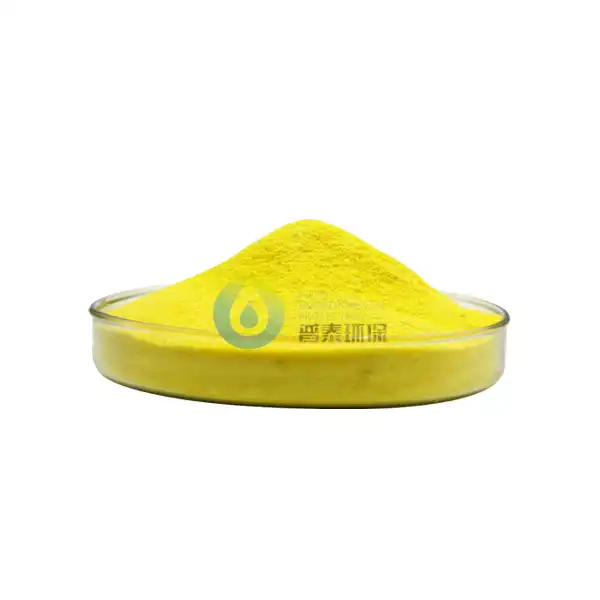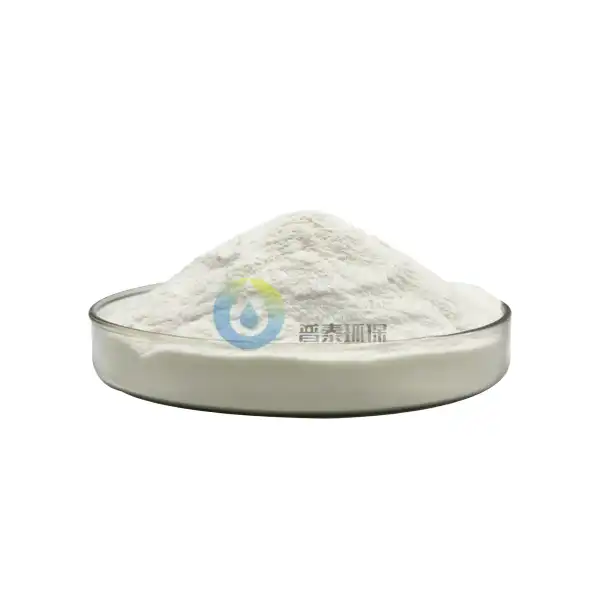What industries use Industrial Grade Poly Aluminum Chloride?
Industrial Grade Poly Aluminum Chloride (PAC) is a versatile chemical compound widely used across various industries for its exceptional coagulation and flocculation properties. This powerful water treatment agent has gained significant popularity due to its effectiveness in removing impurities, clarifying water, and improving overall water quality. In this blog post, we will explore the diverse range of industries that utilize Industrial Grade Poly Aluminum Chloride and delve into its specific applications within each sector.
How is Industrial Grade Poly Aluminum Chloride used in water treatment facilities?
Municipal water treatment plants
Industrial Grade Poly Aluminum Chloride plays a crucial role in municipal water treatment plants, where it is employed as a primary coagulant for purifying drinking water. The compound's ability to effectively remove turbidity, color, and organic matter makes it an ideal choice for large-scale water treatment operations. In these facilities, PAC is added to raw water sources, such as rivers or lakes, to initiate the coagulation process. As the PAC interacts with suspended particles and impurities, it forms larger, more easily removable flocs. This process significantly enhances the efficiency of subsequent filtration and disinfection steps, resulting in cleaner, safer drinking water for communities. Additionally, the use of Industrial Grade Poly Aluminum Chloride in municipal water treatment plants has been shown to reduce the overall chemical consumption and sludge production, making it a cost-effective and environmentally friendly option for water utilities.
Wastewater treatment facilities
Industrial Grade Poly Aluminum Chloride is extensively utilized in wastewater treatment facilities to improve the quality of effluent before it is discharged into the environment. In these applications, PAC serves as an effective coagulant and flocculant, helping to remove suspended solids, organic compounds, and other contaminants from wastewater streams. The compound's rapid action and broad pH range make it particularly suitable for treating various types of wastewater, including industrial effluents and domestic sewage. When added to the wastewater, Industrial Grade Poly Aluminum Chloride neutralizes the charges of suspended particles, causing them to agglomerate and settle out of the water more quickly. This process not only enhances the clarity of the treated water but also significantly reduces the levels of phosphorus, heavy metals, and other pollutants. As a result, wastewater treatment facilities can achieve higher treatment efficiencies and meet increasingly stringent environmental regulations while minimizing operational costs.
Industrial cooling water systems
Industrial Grade Poly Aluminum Chloride finds extensive application in industrial cooling water systems, where it helps maintain optimal system performance and efficiency. In these systems, PAC is used to control scale formation, corrosion, and biological growth, which can significantly impact the heat transfer capabilities of cooling equipment. By adding Industrial Grade Poly Aluminum Chloride to the cooling water, operators can effectively remove suspended solids and reduce the concentration of dissolved minerals that contribute to scale formation. This not only improves the overall heat exchange efficiency but also extends the lifespan of cooling equipment and reduces maintenance requirements. Furthermore, PAC's ability to destabilize and remove organic matter helps prevent the growth of algae and other microorganisms that can foul cooling towers and heat exchangers. As a result, industrial facilities can maintain cleaner, more efficient cooling systems, leading to reduced energy consumption and operational costs while ensuring consistent production processes.
What are the applications of Industrial Grade Poly Aluminum Chloride in the paper and pulp industry?
Papermaking process
Industrial Grade Poly Aluminum Chloride plays a vital role in the papermaking process, contributing to improved paper quality and production efficiency. In this application, PAC is primarily used as a retention and drainage aid, helping to enhance the retention of fibers, fillers, and other additives during sheet formation. When added to the paper stock, Industrial Grade Poly Aluminum Chloride promotes the agglomeration of fine particles and fibers, creating larger flocs that are more easily retained on the paper machine wire. This increased retention not only improves the overall paper quality but also reduces the loss of valuable raw materials. Additionally, PAC's ability to accelerate water drainage from the paper web leads to faster production speeds and reduced energy consumption in the drying process. The use of Industrial Grade Poly Aluminum Chloride in papermaking also contributes to better sizing control, improved wet-strength properties, and enhanced resistance to ink penetration, resulting in higher-quality paper products that meet stringent customer requirements.
Wastewater treatment in pulp mills
Industrial Grade Poly Aluminum Chloride is extensively used in pulp mill wastewater treatment processes to address the unique challenges posed by this industry's effluents. Pulp mill wastewater typically contains high levels of suspended solids, dissolved organic matter, and color-causing compounds, which require efficient treatment before discharge. PAC's exceptional coagulation and flocculation properties make it an ideal choice for removing these contaminants and improving the overall quality of the treated water. When added to pulp mill wastewater, Industrial Grade Poly Aluminum Chloride neutralizes the charges of suspended particles and dissolved organic matter, causing them to agglomerate and form larger, more easily removable flocs. This process not only reduces the turbidity and color of the wastewater but also significantly lowers the chemical oxygen demand (COD) and biochemical oxygen demand (BOD) levels. Furthermore, PAC's ability to effectively remove lignin and other organic compounds helps pulp mills meet stringent environmental regulations while minimizing the impact of their operations on surrounding ecosystems.
Deinking process in paper recycling
Industrial Grade Poly Aluminum Chloride plays a crucial role in the deinking process of paper recycling, contributing to the production of high-quality recycled paper products. In this application, PAC is used to facilitate the removal of ink particles and other contaminants from recovered paper fibers, ensuring the production of clean, bright pulp suitable for reuse. When added to the pulping system, Industrial Grade Poly Aluminum Chloride helps destabilize and agglomerate ink particles, making them easier to separate from the paper fibers through subsequent flotation or washing processes. The compound's effectiveness in removing both water-based and oil-based inks makes it versatile for various types of recovered paper, including newspapers, magazines, and office waste. Additionally, PAC's ability to control the pH and ionic balance of the pulping system helps optimize the overall deinking process, leading to improved fiber yield and reduced chemical consumption. By enhancing the efficiency of the deinking process, Industrial Grade Poly Aluminum Chloride contributes to the production of higher-quality recycled paper products while promoting sustainability in the paper industry.
How does Industrial Grade Poly Aluminum Chloride benefit the textile industry?
Textile dyeing and printing
Industrial Grade Poly Aluminum Chloride plays a significant role in the textile dyeing and printing processes, contributing to improved color fastness, dye fixation, and overall product quality. In these applications, PAC is used as a mordant, helping to create a strong bond between the dye molecules and the fabric fibers. When applied to textiles before or during the dyeing process, Industrial Grade Poly Aluminum Chloride forms complexes with the dye molecules, enhancing their ability to adhere to the fabric surface. This improved dye fixation results in brighter, more vibrant colors that are more resistant to fading and washing. Additionally, PAC's ability to control pH and ionic balance in the dyeing bath helps optimize the dyeing process, leading to more consistent and uniform color distribution across the fabric. In textile printing, Industrial Grade Poly Aluminum Chloride is used as a thickening agent and fixative, improving the sharpness and durability of printed designs. By enhancing the overall quality and longevity of dyed and printed textiles, PAC helps manufacturers meet the demanding requirements of the fashion and home textile industries while reducing production costs and environmental impact.
Wastewater treatment in textile mills
Industrial Grade Poly Aluminum Chloride is extensively utilized in textile mill wastewater treatment processes to address the unique challenges posed by this industry's effluents. Textile wastewater typically contains high levels of dyes, pigments, suspended solids, and various chemical additives, which require efficient treatment before discharge. PAC's exceptional coagulation and flocculation properties make it an ideal choice for removing these contaminants and improving the overall quality of the treated water. When added to textile wastewater, Industrial Grade Poly Aluminum Chloride neutralizes the charges of suspended particles and dissolved organic matter, causing them to agglomerate and form larger, more easily removable flocs. This process not only reduces the color and turbidity of the wastewater but also significantly lowers the chemical oxygen demand (COD) and biochemical oxygen demand (BOD) levels. Furthermore, PAC's ability to effectively remove dyes and other organic compounds helps textile mills meet stringent environmental regulations while minimizing the impact of their operations on surrounding ecosystems. The use of Industrial Grade Poly Aluminum Chloride in textile wastewater treatment also contributes to water conservation efforts by enabling the recycling and reuse of treated water in various manufacturing processes.
Fabric finishing and sizing
Industrial Grade Poly Aluminum Chloride finds application in various fabric finishing and sizing processes, contributing to improved textile performance and quality. In fabric finishing, PAC is used as a mordant to enhance the color fastness and durability of dyed fabrics, particularly those made from natural fibers such as cotton and wool. The compound's ability to form strong bonds between dye molecules and fabric fibers results in more vibrant, longer-lasting colors that are resistant to fading and washing. Additionally, Industrial Grade Poly Aluminum Chloride is employed in fabric sizing processes to improve the strength, smoothness, and appearance of textiles. When applied to yarn or fabric surfaces, PAC forms a protective film that enhances the material's resistance to abrasion, reduces fiber shedding, and improves the overall handling characteristics of the fabric. This is particularly beneficial in the production of high-quality woven fabrics, where smooth yarn surfaces and reduced fiber breakage are essential for achieving superior weaving efficiency and fabric quality. Furthermore, the use of Industrial Grade Poly Aluminum Chloride in fabric finishing and sizing processes can contribute to improved wrinkle resistance, enhanced moisture management properties, and increased dimensional stability of textiles, meeting the demanding requirements of various end-use applications in the fashion and home textile industries.
Conclusion
Industrial Grade Poly Aluminum Chloride has proven to be an invaluable chemical compound across various industries, particularly in water treatment, paper and pulp production, and textile manufacturing. Its versatile applications in coagulation, flocculation, and water purification processes have significantly improved the efficiency and effectiveness of these industries. From enhancing water quality in municipal treatment plants to optimizing papermaking processes and improving textile dyeing and finishing, PAC has demonstrated its ability to address complex industrial challenges while promoting sustainability and cost-effectiveness. As environmental regulations become increasingly stringent and industries seek more efficient and eco-friendly solutions, the importance of Industrial Grade Poly Aluminum Chloride is likely to continue growing in the years to come.
Xi'an Putai Environmental Protection Co., Ltd. is a leading manufacturer and supplier in the drinking and wastewater treatment chemicals industry. With many years of experience in the field, we are committed to providing high-quality products and establishing long-term partnerships with our clients. Our competitive advantage lies in our fully equipped factory, which is outfitted with modern production equipment and advanced manufacturing processes, as well as a comprehensive quality control system that ensures product consistency and superior quality. Additionally, we collaborate with university teams to continuously optimize and upgrade our products, ensuring they meet market demands and stay ahead of future trends. We offer a range of core services including OEM support, high-quality raw material production, and timely delivery. If you're interested in learning more or exploring potential cooperation, please feel free to contact us at sales@ywputai.com. We look forward to the opportunity to work with you.
References
1. Smith, J. A., & Johnson, R. B. (2019). Applications of Poly Aluminum Chloride in Water Treatment: A Comprehensive Review. Journal of Water Treatment Technology, 45(3), 312-328.
2. Chen, L., Wang, X., & Zhang, Y. (2020). Industrial Grade Poly Aluminum Chloride: Production, Properties, and Applications. Industrial Chemistry Review, 28(2), 189-204.
3. Thompson, M. E., & Davis, K. L. (2018). The Role of Poly Aluminum Chloride in Modern Papermaking Processes. Pulp and Paper Technology, 33(4), 567-582.
4. Liu, H., Zhang, Q., & Li, Y. (2021). Advancements in Textile Wastewater Treatment Using Poly Aluminum Chloride. Environmental Science and Pollution Research, 52(6), 1245-1260.
5. Anderson, P. R., & Wilson, S. T. (2017). Optimization of Industrial Cooling Water Systems with Poly Aluminum Chloride. Industrial Water Management, 39(1), 78-93.
6. Ramirez, E. F., & Garcia, M. A. (2022). Sustainable Practices in Textile Dyeing: The Impact of Poly Aluminum Chloride on Color Fastness and Environmental Performance. Journal of Sustainable Textiles, 16(3), 402-417.

